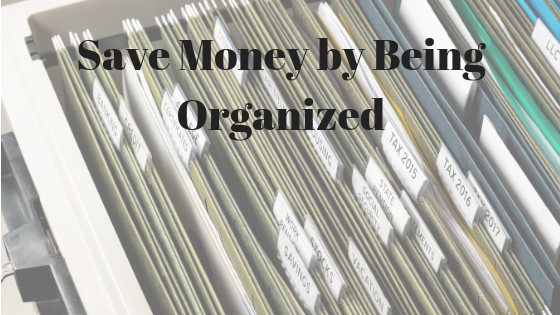
It can be tempting to let tidiness and organization go out the window when you first grow up and move out of the house. The truth is, being messy can end up costing you a great deal of money. A cluttered world leads to a cluttered mind and messy decision making, especially financially.
Being organized is the key to making money and saving more of it. If you want to do well at one or the other or both, you’ll find that progress is most easily made by staying organized.
Schedule Your Bills to be Paid on Time
The first expenses you’ll have to worry about each month are your household bills, such as rent and utilities. In the end, this is all the more reason to be organized, so you can easily manage your money and keep things on time each and every month.
• Use an online calendar, spiral-bound planner, computer program, smartphone app, or online banking account to schedule when your bills will need to be paid. Some credit cards even allow you to choose your payment due date each month. Avoid any delays that would cost you substantial late fees and other charges.
• When you set up electronic banking, make sure to understand exactly how the system works. Some programs will not reschedule payments around weekends or bank holidays. Other payments may take several days to post to your account. Schedule them well in advance of the due date to avoid any delays.
• Pay your income taxes on time or early. Penalties and late charges add up quickly if you don’t file the proper extensions. Consider hiring an accountant to help with your preparation and filing, especially if you are self-employed. A good accountant should more than pay for their fee in tax savings.
• If you own your own business, you may be required to pay taxes quarterly since you don’t have the benefit of withholding. The government doesn’t want to chance your business having a cash flow problem come April 15th.
Organize Your Paperwork
Know exactly where all your receipts, financial statements, and past bills are filed. There’s nothing worse than attempting to search for a needle in a paper haystack when a last-minute question arises.
• Each day look at your desk area to see what pieces of paper you can immediately throw away. A wastebasket at your desk is a must, as well as a shredder to prevent identity theft.
• Make use of file folders or a portable file container instead of having piles of papers on your desk or countertops. This will help you from losing important pieces of paperwork under a mountain of unimportant junk.
Consult with a Financial Advisor
This can be a good choice even if you’re not someone with a substantial investment portfolio. There are fee-only advisors who will charge by the hour to look over your investments and see if you’re on track for your long-term goals. The more organized you are about all accounts and past tax filings, the more they’ll be able to help.
• Take a look at your investments that aren’t performing very well, an advisor can help you move your money around to better performing funds that can offer you a higher yield or give you greater dividends.
• If you don’t have any investments, an expert can listen to your financial goals and recommend an investment plan for achieving those goals. Even starting off modestly will often bring you some annual dividends. Every little bit adds up!
Consolidate Debts
Take control of your money by consolidating large debts into one loan. Research which banks or credit cards will give you the lowest interest rates and consolidate your payments into one. This will help you save money by paying less in interest, but you must be sure to also limit your spending until your debt is completely paid off.
• The process for getting the best debt consolidation loans can be relatively easy these days since you can now apply for them online with a quick application. Lendedu.com is a great resource for learning how to consolidate your debts and they have even researched the companies for you.
Being in total control of your finances is all about staying organized and evaluating your accounts. With a little bit of work each day and monitoring your progress, will go a long way to helping you achieve your financial goals.




No comments yet.